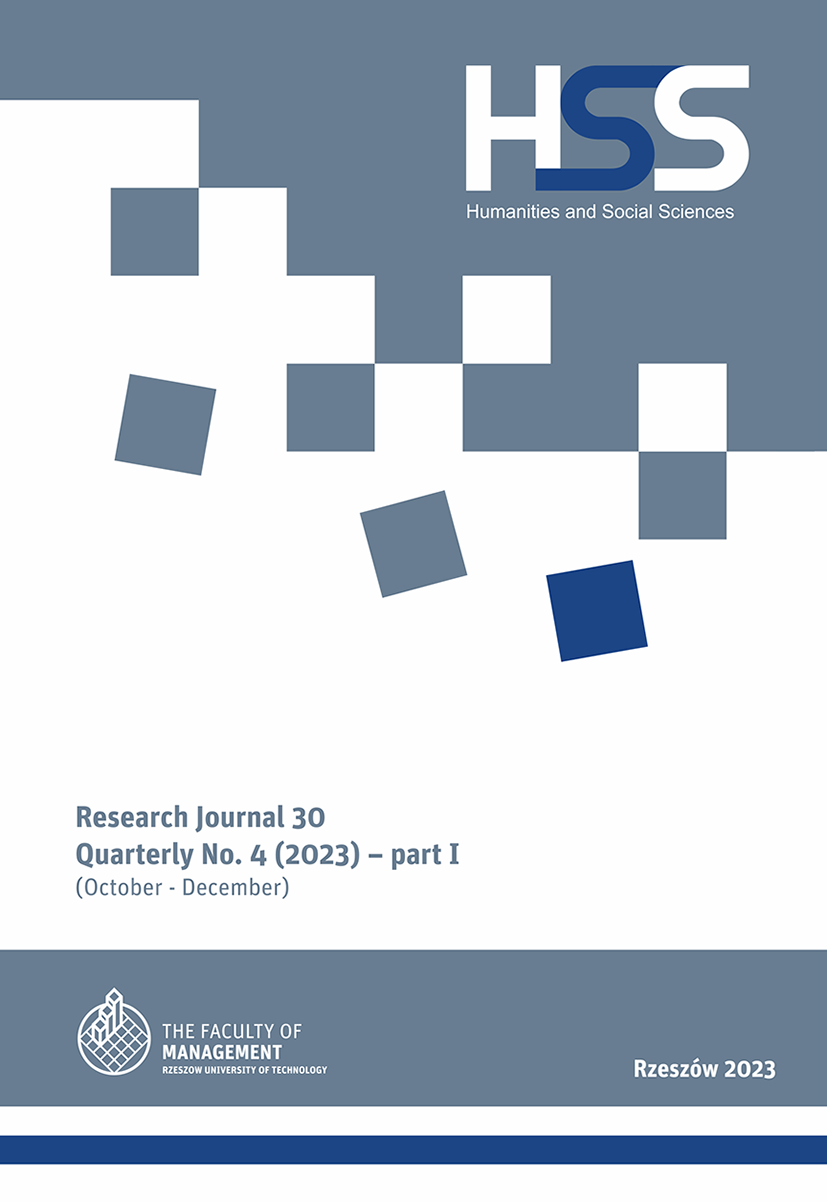Abstrakt
Due to the unstable, turbulent socioeconomic and political environment in which organizations now operate, stress has become an inseparable companion of human beings in the work process. Psychosocial risks are among the most important challenges currently facing employers regarding human resources management and maintaining satisfactory organizational performance. In this context, this study aims to identify contemporarily relevant employee stress management competencies and the actions employers should take to support their development. To do so, it employs desk research and descriptive analysis, undertaking an analysis of the literature on the subject and available secondary data. It identifies three fundamental stress management challenges facing managers and employee teams. For each of these challenges, the article identifies employees’ competencies that need to be improved and highlights related possible actions by employers.
Bibliografia
Armstrong, M. (2022). Zarządzanie zasobami ludzkimi. Kraków: Oficyna Ekonomiczna.
Boyatzis, R.E. (1982). The Competent Manager: A Model for Effective Performance. New York: John Wiley and Sons.
—— (2008). Competencies in the 21st Century. „Journal of Management Development”, 27/1.
EU-OSHA (2023). Psychosocial risks and stress at work [Access: 25.02.2023]. Access on the internet: https://osha.europa.eu/en/themes/psychosocial-risks-and-stress.
EU-OSHA, ESENER (2019). Europejskie badanie przedsiębiorstw na temat nowych i pojawiających się zagrożeń [Access: 24.02.2023]. Access on the internet: https://osha.europa.eu/pl/facts-and-figures/esener.
EU-OSHA (2022). Poland: OSH Pulse 2022: OSH in post-pandemic workplaces [Access: 1.03.2022]. Access on the internet: https://osha.europa.eu/en/publications/poland-osh-pulse-2022-osh-post-pandemic-workplaces.
Filipowicz, G. (2004). Zarządzanie kompetencjami zawodowymi. Warszawa: Polskie Wydawnictwo Ekonomiczne.
—— (2016). Zarządzanie kompetencjami. Perspektywa firmowa i osobista. Warszawa: Wolters Kluwer.
Gólcz, M. (2016). Stres w pracy. Poradnik dla pracownika. Warszawa: PIP.
Greeshma, B., Indra Priya, G., Aswathy, B., Janani, S. (2018). Stress Management in the Work Place – Challenges Faced By Hr. ”IOSR Journal of Business and Management”, 20/4.
HRK (2021). Stres w pracy. Raport 2021 [Access: 18.02.2023]. Access on the internet: https://hrk.pl/pl/grupa-hrk/aktualnosci/raport-stres-w-pracy-2021.
International Labour Office (1986). Psychosocial factors at work: Recognition and control, Geneva, Vol. 56.
Kaszubska, A. (2021). Stres w pracy. Poradnik dla pracodawcy. Warszawa: Państwowa Inspekcja Pracy Główny Inspektorat Pracy.
Koalicja „Bezpieczni w pracy” (2019). Bezpieczeństwo pracy w Polsce 2019. Mobbing, depresja, stres w miejscu pracy [Access: 15.02.2023]. Access on the internet: https://bezpieczniwpracy.pl.
Kocór, M. (2019). Nadwyżka czy deficyt kompetencji?: konsekwencje niedopasowania na rynku pracy. Kraków: Wydawnictwo Uniwersytetu Jagiellońskiego.
Krzyminiewska, G. (2020). Kompetencje pracowników w Nowej Gospodarce [w:] Kształtowanie i rozwój kompetencji pracowników – problemy i wyzwania, red. M. Młokosiewicz, K. Włodarczyk. Warszawa: Akademicka Oficyna Wydawnicza EXIT.
Le Deist, F.D., Winterton, J. (2005). What is competence?. „Human Resource Development International”, 8/1.
Łodzińska, J. (2013). Stres zawodowy narastającym zjawiskiem w miejscu pracy. „Białostockie Studia Prawnicze”, 13.
Molek-Winiarska, D. (2010). Zarządzanie stresem – nowa kompetencja menedżera. „Prace Naukowe Uniwersytetu Ekonomicznego we Wrocławiu”, 115.
Pocztowski, A. (2018). Zarządzanie zasobami ludzkimi. Koncepcje – praktyki – wyzwania, Warszawa: PWE.
Polańska, A. (2002). Sztuka dobrego studiowania. Tarnów: MWSE w Tarnowie.
Pracodawcy RP, Grupa ArteMis (2021). Zdrowie psychiczne w środowisku pracy [Access: 28.02.2023]. Access on the internet: https://pracodawcyrp.pl/aktualnosci/pracownicy-oczekuja-wsparcia-ich-zdrowia-psychicznego-wyniki-badania-ankietowego-kampanii-zrozum-poczuj-dzialaj.
Quick, J.C., Quick, J.D., Nelson, D.L., Hurrell, J.J., Jr. (1997). Preventive stress management in organizations. „American Psychological Association”. DOI: 10.1037/10238-000.
Sahoo, S.R. (2016). Management of Stress at Workplace. „Global Journal of Management and Business Research: A Administration and Management”, Vol. 16 Issue 6.
Selye, H. (1960). Stress życia. Warszawa: Państwowy Zakład Wydawnictw Lekarskich, tłum. J. Guzek, R. Rembiesa.
Wiśniewska, S. (2021). Kompetencje pracowników – wyzwania przyszłości [w:] Wybrane zagadnienia zarządzania kompetencjami pracowników w organizacji, red. M. Tyrańska, Warszawa: Wydawnictwo C.H. Beck.
World Economic Forum, The Future of Jobs Report 2020, October 2020 [Access: 27.02.2023]. Access on the internet: https://www.weforum.org/reports/the-future-of-jobs-report-2020


